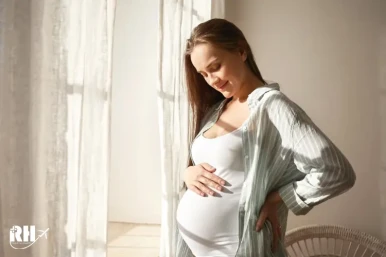Epigenetics in Surrogacy: Will the Baby Resemble the Surrogate Mother?
Fertility Treatment
r couples struggling with infertility, surrogacy is often the only way to experience parenthood. However, one of the most common questions intended parents ask is: “If we use a surrogate, will the baby look like her?” The answer depends on whether only the surrogate’s womb is used or if her donated egg is also part of the surrogacy process. In this article, we explain how genetics and epigenetics in surrogacy affect a baby’s appearance.
How Is a Baby’s Appearance Determined?
The main factor that shapes a child’s physical traits and facial features is genetics, inherited from the biological mother and father. Features such as nose shape, lips, jawline, skin tone, eye color, and even hair type are passed down through DNA. Environmental factors during pregnancy may influence growth, but genetics remain the primary source of resemblance.
Does the Surrogate Mother Influence the Baby’s Appearance?
In gestational surrogacy, the surrogate mother carries the embryo but does not contribute genetic material unless her egg is used. Still, her womb environment plays a role in fetal development:
Blood Supply
The surrogate provides oxygen and nutrients, but her blood does not transfer genetic traits. Even her blood type has no effect on the baby’s DNA.
/47_1755771701_large_1758796725_large.webp)
Uterine Environment
The second or surrogate mother's womb is the place where the fetus grows until birth, and although it does not play a role in the child's genetic changes, it can affect how genes are expressed. In other words, each baby carries many genes in its cells, some of which may not be activated until the end of life. However, the conditions in the womb during the 9 months of pregnancy affect the activation or deactivation of some genes and change the child's appearance according to the characteristics inherited from the real parents. And these changes are examined by genetic tests of the surrogate womb.
Lifestyle and Health
The surrogate’s diet, stress levels, hormone balance, and possible illnesses or medications may impact the baby’s weight, growth, or neurological development.
/49_1755771794_large_1758797241_large.webp)
How Does IVF Affect in Baby’s Appearance?
There are two main approaches for ferritization in surrogacy:
Using the Intended Mother’s Egg
If the biological mother’s eggs are healthy, the embryo created with the father’s sperm will carry 100% of the genetic traits from both parents. The baby will resemble them, not the surrogate.
/48_1755771841_large_1758797465_large.webp)
Using a Donor Egg
If egg donation is necessary, 50% of the baby’s genetic makeup will come from the donor. If the surrogate is also the egg donor, the baby may share her physical features. To increase resemblance, couples often choose a donor with similar characteristics to the intended parents.
Final Word
There is no genetic link between the surrogate mother and the child unless she donates her egg. The baby’s appearance, facial features, and inherited traits always come from the biological parents (egg and sperm providers). However, the surrogate’s womb environment—through epigenetic factors such as nutrition, stress, and hormones—may influence how certain genes are expressed.
Why Choose Surrogacy in Iran?
Iran has become one of the most trusted destinations for surrogacy and infertility treatment abroad due to its advanced medical facilities, experienced fertility doctors, and affordable surrogacy costs compared to Western countries. Many international couples choose surrogacy in Iran to achieve their dream of parenthood in a supportive and medically advanced environment.
Contact us for a free initial consultation about Surrogacy
FAQs
Will my baby look like the surrogate mother?
No. The baby inherits genetic traits only from the egg and sperm providers.
Where do a baby’s physical traits come from?
From the genes inside the egg (mother) and sperm (father).
Can the surrogate’s womb affect my baby?
Yes, but only epigenetically. The uterine environment can influence growth, weight, or temperament, but not facial resemblance.
Why does my newborn’s face change after birth?
This is a natural process that happens in all babies—whether born through natural pregnancy or surrogacy—as facial features stabilize during growth.

 WhatsApp
WhatsApp
 Telegram
Telegram
 Facebook
Facebook
 Email
Email

No reviews
Your comment